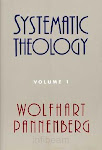1 month ago
Wednesday, 25 June 2008
After Virtue - part 5 (of 6)
1. Where Are We Now, and Why?
2. “Enlightened” Europe
3. Turning point: Nietzsche or Aristotle?
4. Pagan vs. Christian Virtues
5. After Virtue
6. MacIntyre’s Answer
5. After Virtue
At this point, there are four chapters (16-19) remaining in the book. The author must make some preliminary conclusions - and he does. Chapter 16 is called From the Virtues to Virtue and After Virtue – hinting at the book’s name, After Virtue.
If is hasn’t before, it becomes clear by now that the meaning of the title is twofold. On one hand, After Virtue is a history of the philosophy of ethics, which includes the modern period after the loss of virtue. On the other, the author is dissatisfied with modern academic philosophy and seeks after virtue. It is one thing to say, “After you, my lady,” and another to say, “I ran after my lady.” (As a side-remark, I must say that the Finnish translation, Hyveen jäljillä, is not horribly unsuccessful.)
What happened to the unity of life? We already know about the loss of teleology. But MacIntyre points to another interesting phenomena: production moving out of the household.
“Practice” isn’t good in itself anymore, and work and pleasure are divided. It is the (emotivist) bureaucratic manager character, not the people in households, who organizes modern work. We live in a linguistic mélange – moral, virtuous, duty, obligation, human rights and so on, are all pseudo-concepts, because they are detached from the unity of life, from teleology.
Surprisingly (and I may add, exhilaratingly), MacIntyre names Jane Austen (1775-1817) as the last great imaginative voice of tradition.
The telos of her heroines is marriage and life of the household. The household is the arena of virtue. Production, sadly, has left the household leaving womanhood split in two: the minority of the leisured (“causing bad novels and gossip”) and the majority of the domestic service, or factory, or prostitution.
For Austen, happiness is Aristotelian. Teleology is restored. Her heroines, as said, seek good through their own good in marriage. Important virtues are true Amiability and Practical Intelligence. We say true Amiability, because Austen introduces a new focus: fake virtues (counterfeits). Self-knowledge which is found through repentance is another new virtue (linked to the New Testament). But the central virtue is Constancy (fin. uskollisuus). It includes both Patience and Courage.
Now, MacIntyre notes (and I detect a certain concurring) that, for Austen, the true genre is not tragedy after all, but comedy. Why so?
Because for Christians, the ultimate reality consists of hope and goodness, or hope in goodness. Dante provides the exemplar.
Chapter 17 is a rather political one. It certainly addresses political theory, namely, the concept of Justice. MacIntyre is dismayed (but not surprised) to note that no mutual conception of Justice can be found. And this, he says, can be considered a real threat to today’s society.
Analytic philosophy sought a foundation. Two accounts stand above all others: (1) Robert Nozick’s (1974) and (2) John Rawl’s (1971) accounts. For the political-minded reader, the right-left division is apparent. Rawl’s “veil of ignorance” stated that Justice is the even distribution of goods. For Nozick, Justice is what is originally acquired justly. These are mutually exclusive accounts, MacIntyre says. The tradition of virtues, he adds, is at odds with both.
Virtue is totally at odds with the whole modern economic order: especially individualism, acquisitiveness (usury), and elevation of market values. Again, why so? The answer is simple. Because modern politics is built on the rejection of virtue (teleology).
Subscribe to:
Post Comments (Atom)







No comments:
Post a Comment